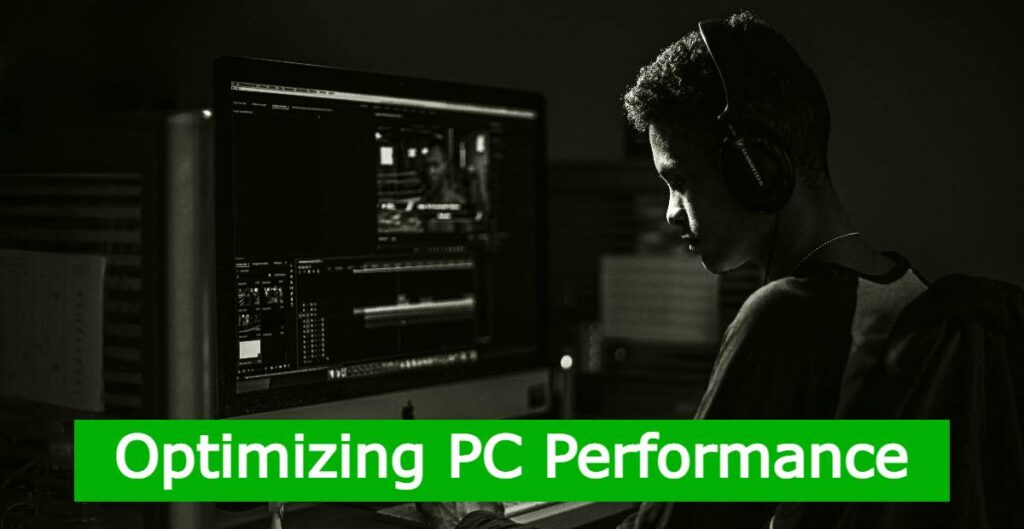How To Optimizing PC Performance ? In the digital world, ensuring optimal performance from your PC is essential for productivity and a smooth user experience.
[ez-toc]
This guide will provide valuable tips and tricks to optimize your PC’s performance, helping you achieve peak efficiency in your daily tasks.
How To Optimizing PC Performance ?
Before diving into optimization tips, it’s crucial to understand the various factors that influence your PC’s performance. Hardware components such as RAM, CPU, GPU, and storage drive play significant roles, along with software efficiency and system settings.
Hardware Optimization Tips
Your computer’s hardware plays a crucial role in its performance. Here are some tips to optimize your PC’s hardware:
- Upgrade RAM: Random Access Memory (RAM) is like your computer’s short-term memory. Adding more RAM allows your PC to handle multiple tasks simultaneously without slowing down. It’s like having a bigger desk to spread out your work on, making everything more efficient.
- Consider SSD: Traditional Hard Disk Drives (HDDs) are like old filing cabinets – they store data but take longer to access. Solid State Drives (SSDs), on the other hand, are like sleek, modern shelves – they access data faster, leading to quicker boot times and application loading. Upgrading to an SSD can give your PC a significant performance boost.
- Optimize CPU/GPU: Your computer’s Central Processing Unit (CPU) and Graphics Processing Unit (GPU) are the brains and muscles behind its operations. Ensuring proper cooling and maintenance for these components prevents overheating and ensures consistent performance. Think of it as taking care of your PC’s heart and muscles to keep it running smoothly.
Software Optimization Tips
Software optimization is all about making sure your computer runs efficiently with the programs you use. Here’s how you can optimize your software:

- Keep OS Updated: Just like updating your phone’s software improves its performance and security, regularly updating your computer’s operating system and device drivers ensures it stays efficient and protected from potential vulnerabilities.
- Use Efficient Software: Opt for lightweight and efficient software alternatives that consume fewer system resources. It’s like choosing a streamlined sports car over a bulky SUV – less weight means better performance and efficiency.
- Remove Unnecessary Programs: Unused applications and unnecessary startup programs hog system resources and slow down your PC. It’s like decluttering your workspace – removing the clutter frees up space and improves productivity.
PC Optimizing Settings Tips
Optimizing your computer’s settings can make a big difference in its performance. Here are some settings optimization tips:
- Power Settings: Adjust power settings to strike a balance between performance and energy consumption based on your usage requirements. Think of it as choosing between a high-performance mode for demanding tasks and an energy-saving mode for everyday use.
- Visual Effects: Customizing visual effects and animations can enhance your PC’s aesthetics, but too many fancy effects can also slow it down. It’s like decorating your workspace – adding some personal touches is nice, but keeping it clutter-free is essential for productivity.
- Virtual Memory: Optimizing virtual memory settings ensures your PC efficiently manages memory resources. Think of it as organizing your workspace – setting aside just the right amount of virtual memory is like allocating enough space for different tasks without overcrowding.
How To Optimizing PC Maintenance Tips
Regular maintenance is key to keeping your PC running smoothly. Here are some maintenance tips:
Disk Cleanup/Defragmentation: Regularly perform disk cleanup and defragmentation to organize and optimize file storage. It’s like tidying up your workspace and arranging files in a way that makes them easy to find and access.
Physical Maintenance: Keep your PC physically clean from dust and debris to prevent overheating and hardware malfunctions. It’s like keeping your workspace clean – a clean environment promotes better focus and efficiency.
Security Measures: Install and regularly update antivirus and antimalware software to protect your PC from potential threats. Think of it as installing security cameras and locks in your workspace – they keep unwanted intruders out and ensure your peace of mind.
Advanced Optimization Techniques
For advanced users looking to squeeze every bit of performance out of their PC, here are some advanced optimization techniques:
- Overclocking: Overclocking your CPU or GPU can increase their performance beyond factory settings, but it requires careful monitoring to prevent overheating and hardware damage. It’s like pushing your PC’s limits to achieve peak performance, but proceed with caution.
- Gaming Optimization: Fine-tune system settings for optimal gaming performance, including graphics settings and driver updates. It’s like customizing your workspace for maximum comfort and productivity, tailored to your specific needs.
- Third-Party Tools: Utilize reputable third-party optimization tools cautiously to automate performance tweaks and maintenance tasks. Think of them as handy gadgets that help streamline tasks in your workspace, but always research and choose reliable tools to avoid potential issues.
Conclusion
By implementing these practical tips for optimizing PC performance, you can ensure that your system operates at its best, enhancing your productivity and overall computing experience.
Do I Need Antivirus In Android Mobile?
Remember to regularly maintain and fine tune your PC to enjoy consistent performance and efficiency.



